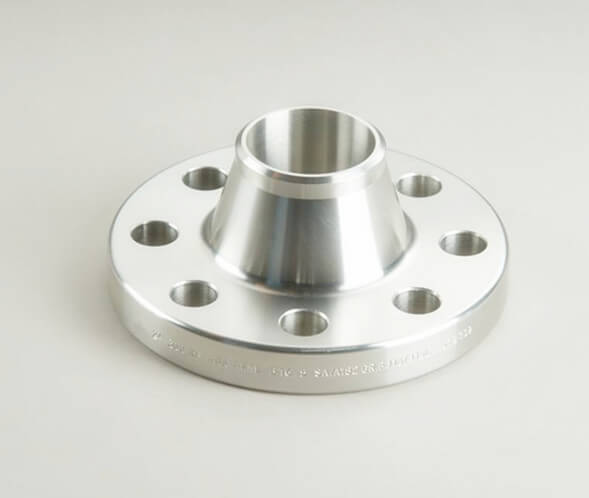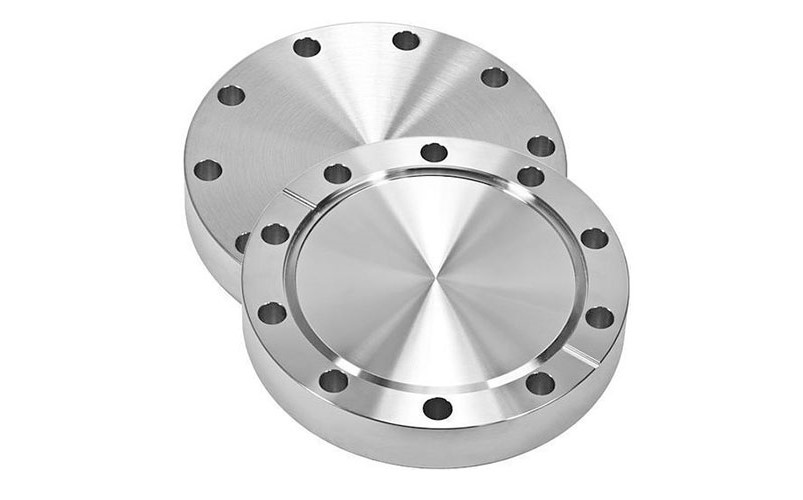

TITANIUM FLANGE


TITANIUM FLANGE
When it comes to industrial applications, using the right materials is essential for ensuring safety, efficiency and reliability. One such material that has gained popularity in recent years is Hastelloy, known for its excellent resistance to corrosion, high-temperature stability and strength. Hastelloy flanges, in particular, are highly sought-after in industries such as chemical processing, oil and gas, and pharmaceuticals due to their ability to withstand harsh environments and extreme conditions. But what exactly makes Hastelloy flanges so special?
We'll delve deeper into the benefits of using Hastelloy flanges for industrial applications, and explore why they are the material of choice for many companies operating in harsh and corrosive environments. So, whether you're a seasoned industrial professional or just starting out in the field, read on to discover the advantages of using Hastelloy flanges for your next project.
Titanium Gr 1 Flanges are manufactured by Tesco Steel & Engineering in different shapes and sizes with custom specifications and client requirements. We manufacture these Titanium Gr 1 flanges according to ASTM, ASME, ANSI, EN, AFNOR, AWWA, GOST, DIN, AS, BS, MSS, SA, UNI, JIS and other international standards. Our factory is equipped with state of the art machinery for production of Titanium Gr 1 flanges. We cater to the gigantic global demand of our customers spread across 6 continents around 96 countries.
| flanges are available in the following specifications: | |
|---|---|
| Size | 1/2"NB to 56"NB |
| Class | 150#, 300#, 3000#, 6000#, 9000# |
| Sch (Schedule) | XS, XXS, STD & Schedule 20, 40, 80, 160 |
| Pressure Ratings | PN 1 - PN 400 |
| ASTM B363 Gr 5 Flange Dimensions |



TITANIUM FLANGE
Countries we export to: ASTM B363 Gr 5 Flanges Manufacturers / Suppliers / Stockist in Kuwait, UAE, Germany, Saudi Arabia, West Africa, Iraq, Congo, Mexico, Bahrain, Canada, Philippines, Thailand, Kenya, Oman, Malaysia, Turkey, Qatar, Sudan, Netherlands, Oman, Nigeria, Lithuania, Gabon, Russia, Vietnam, Angola, Bolivia, Indonesia, UK, Yemen, Italy, United States, Venezuela, Spain, Iran, Estonia, Kazakhstan, Algeria, Jordan, Ecuador, Portugal, Colombia, Libya, Chile, Peru, Iran, South Africa, Bangkok, Namibia, Jeddah, Afghanistan, Israel, Zambia, Macau, Morocco, Denmark, Taiwan, Norway, Belarus, North Macedonia, Lebanon, Sri Lanka, Bhutan, Bulgaria, Albania, Ukraine, Belgium, Finland, Slovokia, Tibet, Romania, France, Brazil, Trinidad & Tobago, Fiji, Tunisia, Gambia, Mexico, Hungary, Zimbabwe, Mongolia, Ghana, Egypt, Kazakhstan, Czech Republic, Azerbaijan, Poland, Greece, Costa Rica, Kosovo, New Zealand, Croatia, Puerto Rico, Tanzania, Somalia.
Major Exporting Areas: ASTM B363 Gr 5 flanges Manufacturers / Suppliers / Stockist in Moscow, Port-Of-Spain, Seoul, Montreal, Dubai, Kuala Lumpur, Aberdeen, Tehran, Bogota, Petaling Jaya, Melbourne, Abu Dhabi, Courbevoie, Edmonton, Ho Chi Minh City, Bangkok, Toronto, Muscat, Milan, Busan, Mexico City, Perth, La Victoria, Santiago, Rio de Janeiro, London, Karachi, Los Angeles, Manama, Geoje-si, Atyrau, Sydney, Riyadh, New York, Jeddah, Houston, Granada, Jakarta, Brisbane, Algiers, Kuwait City, Dubai, Hanoi, Doha, Al Jubail, Chiyoda, Cairo, Gimhae-si, Caracas, Lagos, Al Khobar, Madrid, Singapore, Calgary, Colombo, Ulsan, Istanbul, Ahvaz, Dammam, Dallas, Texas, Ankara, Sharjah, Vung Tau, Angola, Benin, Burundi, Botswana, Burkina Faso, Cameroon, Douala, Central African Republic, Republic of Congo, Democratic Republic of Congo, Côte d'Ivoire, Djibouti, Eritrea, Ethiopia, Equatorial Guinea, Gabon, Guinea, Kenya, Liberia,Malawi, Mali, Mauritania, Mauritius, Casablanca-Settat, Tanger-Tetouan-Al Hoceima, Fès-Meknès, Marrakesh-Safi, Oriental, Béni Mellal-Khénifra, Souss-Massa, Laâyoune-Sakia El Hamra, Rabat-Salé-Kénitra region, Mozambique, Temara, Niger, Rwanda, Senegal, Sierra Leone, Sudan, Tanzania, Togo, Uganda, Bangkok, Bangchan, Khlong Sam Wa, Gemopolis, Lard Krabang, Pathumthani, Bangkadi, Navanakorn, Samut Prakarn, Bangplee, Bangpoo, Saraburi, Nongkhae, SIL I/Land, Chachoengsao, 304 I/P, Gateway City, Wellgrow, Rayong, Amata City, Eastern Seaboard, Hemaraj Eastern Seaboard, Rojana, Soam Eastern, Chonburi, Amata Nakorn, Hemaraj Chonburi, Pinthong, Ayutthaya, Bangpa-in, Saha Ratna Nakorn, Nakornratchasima, Kabinburi, Prachinburi, HCMC, Tan Thuan Export Processing Zone, Bien Hoa, Dong Nai Province, Amata City Bien Hoa Industrial Park, Long Binh Techno Park, Binh Duong Province, Vietnam Singapore Industrial Park, My Phuoc Industrial Park, Ho Nai Industrial Zone, Bau Xeo Industrial Park, Long Thanh Industrial Zone, Long Duc Industrial Park, Duc Hao I, Tan Huong, Long Jiang, Tra Noc I/II, Hung Phu I, Hiep Phuoc Industrial Park, Phuoc Dong Industrial Park, Dinh Vu – Cat Hai Economic Zone.